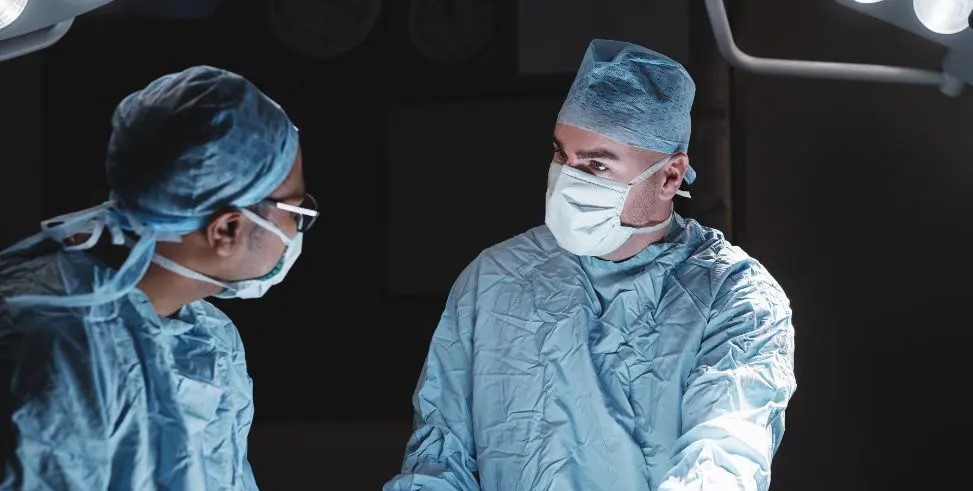Going in for surgery is nerve-wracking enough without the thought of something going wrong. But sometimes in life mistakes do happen that never should.
Surgical errors are preventable mistakes made during an operation. They’re not the same as the normal risks that come with any procedure. You have rights if you’ve been hurt because of one such surgical error. Knowing these rights can help you protect yourself and get the support you need when things go wrong.
Surgical Errors vs. Known Surgical Risks
Every surgery carries some level of risk, even when everything is done correctly. Before your operation, your doctor should explain these possible problems – that’s called informed consent. Surgical errors are different. They’re mistakes that happen when proper care isn’t followed.
For example, small bleeding during gallbladder surgery can be a normal risk you agree to. But if the surgeon cuts a major blood vessel they should have avoided, that’s an error. The key question is whether the care matched what other skilled surgeons would have given in the same situation. This “standard of care” is what helps decide if a surgical error claim is valid.

Common Types of Surgical Errors
Some mistakes happen more often than others:
- Operating on the wrong body part or even the wrong patient
- Damaging nerves during surgery, leading to pain or loss of movement
- Leaving tools or sponges inside the body before closing
- Giving the wrong medicine or the wrong dose
- Creating holes in organs or blood vessels that aren’t noticed immediately
Some errors are spotted during surgery. Others may not show up for days or weeks, only becoming clear when infection or pain develops.
Causes and Contributing Factors
A range of problems can lead to surgical errors:
- Poor communication between doctors, nurses, and other staff
- Overtired medical teams working long shifts
- Lack of proper training or experience
- Skipping important details in patient records
- Equipment problems or breakdowns
- Ignoring safety steps, like proper cleaning of instruments
When hospitals or surgical teams rush or skip checks, patients can get hurt.
Your Legal Rights After a Surgical Error
If a surgical error harmed you, then there are key rights to remember:
You have the right to understand your surgery before it happens. You should also be aware of all the risks and the options available to you.
Not only that, but you should also get a second opinion from another doctor if you suspect something is not right.
You may be owed money for the harm caused. And this can include the following:
- Costs of extra medical treatment to fix the mistake
- Pay lost from missing work
- Expenses for therapy or recovery services
- Payment for the pain and suffering you’ve gone through
These rights exist so you don’t have to bear the cost of someone else’s mistake.
Proving Surgical Malpractice
To win a case, you must show the doctor failed to give proper care. You need proof that the mistake directly caused your injury. In most cases, another medical expert must explain how the surgeon failed to meet basic standards.
Emergencies can make proving malpractice harder, since doctors may need to make fast decisions under pressure.
And that is why gathering evidence early matters so much. Your case becomes strong if you have all the records, witness statements, and expert opinions.

Steps to Take If You Suspect a Surgical Error
If you think a surgical error has happened:
- Keep detailed notes – your symptoms, what doctors say, and all medical reports.
- You can check with another doctor right away to check your condition.
- You can also report the problem to the hospital.
- Speak to a lawyer who knows about medical mistakes.
- Act quickly, as there are time limits for filing a claim.
Procedural Requirements for Filing a Claim
The process for filing a claim varies from state to state. Some states can require a letter from another doctor confirming that your surgeon made a mistake. At the same time, others can have review boards that look at cases before they go to court. And these rules can help make sure that only valid claims move forward.
Following your state’s steps exactly is crucial. So missing them could mean losing your chance for help.
Conclusion
Surgical errors should never happen in the first place. But if they do, then you need to have strong legal protections. The first step is to be aware of the difference between a normal risk and a preventable mistake. Take action fast to protect yourself if you have been hurt.

